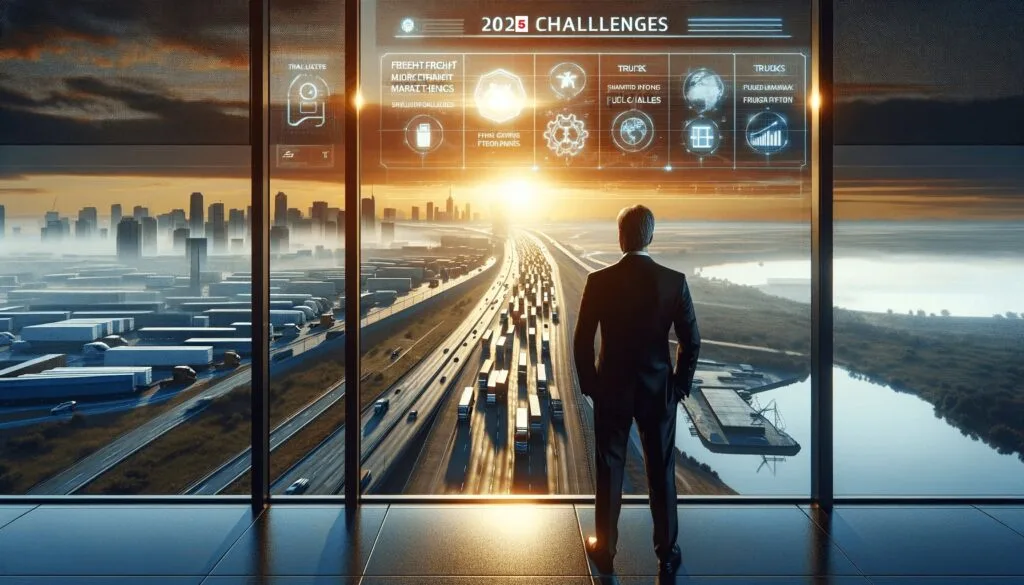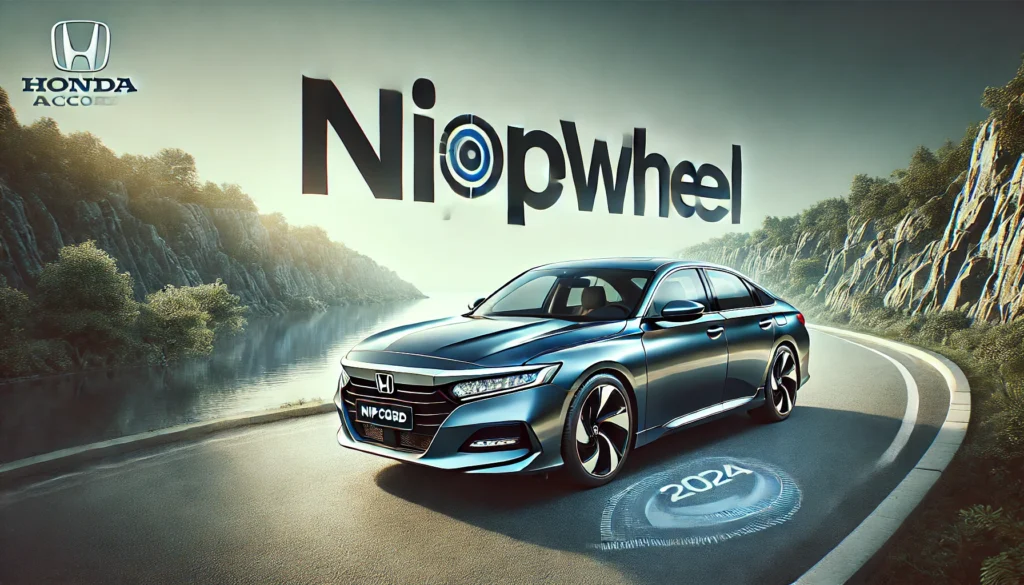Introduction to Electric and Gasoline Cars
Electric Car vs Gasoline Car: 10 Interesting Facts about Electric and Gasoline Cars Electric cars and gasoline cars differ in various aspects (like safety systems and EV adoption). Electric cars are powered by electricity and produce zero emissions, making them environmentally friendly. On the other hand, gasoline cars rely on internal combustion engines and emit pollutants.
Additionally, electric cars offer lower operating costs and require less maintenance than gasoline cars. Expert Analysis of the Pros and Cons of Electric Car vs Gasoline Car and Comparative Comparison of 10 Interesting Facts about Electric and Gasoline car choices for modern driving needs. One of the heated topics in modern Transport Challenges for drivers searching for power, cost, and Eco-Efficiency.
Selecting the right car is even more difficult today since technology continues to advance quickly, especially in the automotive industry. Our primary objective in presenting this comparative analysis is to help the reader gain as much insight into most of the main contrasting elements between electric and gasoline vehicles as possible.
Between Electric cars and Gasoline cars, electric cars are from an entirely different paradigm in the automotive industry. EVs have batteries mostly recharged with electricity, while gasoline cars use internal combustion engines and combustible fuel, gasoline. Each package has its strengths and weaknesses and is designed to satisfy the various requirements of contemporary drivers.
Environmental Impact: Electric Cars vs Gasoline Cars
Current and future emissions of electric and gasoline cars differ, considering their effects on air and climate quality and sustainability.
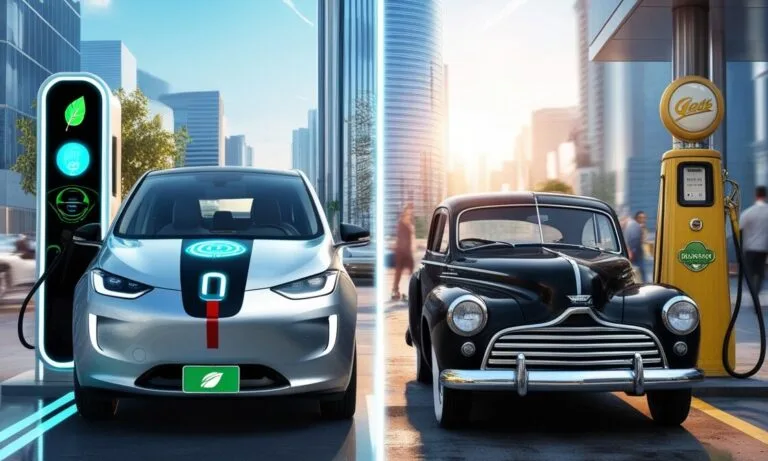
How Electric Cars Help Reduce Emissions
Among all the vehicles, electric vehicles are unique to be recognized for their environmental consideration where their emissions are negligible considering their emissions since they emit no fumes out of their tailpipe. With fewer vehicles, there are no exhaust fumes, hence lowering emissions.
It will help address air pollution worsened by vehicle emissions in the most populated areas. The IEA insists electric cars are a key antidote to greenhouse gas emissions and climate change.
This way, only a little power is used, and it comes from renewable energy sources, making EVs nearly carbon neutral, which makes any EV much cleaner than the traditional gasoline-powered car.
Further, electric cars are also beneficial for energy savings. Sometimes, opinions go beyond emission reduction proposals. According to the U.S. Department of Energy, they explained that electric vehicles are more efficient than gasoline automobiles in terms of energy use.
Kinetic energy production from electrical energy is more efficient in electric vehicles, translating to less energy loss while in operation. This efficiency is an environmental consideration since it lessens carbon footprint emissions and positively impacts sustainability as energy usage in transportation is made efficient.
Also, electric cars’ social and economic environmental impact goes beyond direct emission effects. Batteries are used in electric vehicles, and the manufacturing process of these batteries has attracted public interest in the extraction of raw materials and production of batteries.
However, these issues are gradually being solved through battery improvements and recycling programs that can enhance the sustainability index of EVs even with their entire lifecycle. Using electric vehicles in manufacturing and using materials contributes to an environmentally sustainable profile in transition.
The Environmental Challenges of Gasoline Cars
On the other hand, traditional cars, which use gasoline fuel, are infamous for their impact on air pollution and carbon emissions. Automotive vehicles that use internal combustion engines combust fossil fuels like gasoline, leading to emissions of greenhouse gases, including Electric Cars vs Gasoline Cars: A Detailed Comparison for Modern Drivers, nitrogen oxides, and particulate matter.
The EPA illustrates the negative consequences of these emissions well, which underlines the impact of such releases on air quality and people’s health, to say nothing about the demand for cleaner solutions that modern society faces due to ordinary gasoline vehicles.
The activities involved in the extraction of oil, refining, and transportation of gasoline cars also affect the environment apart from the emission of gases from the exhaust. From drilling oil wells to distributing gasoline to filling stations, this supply chain process entails high energy consumption activities that escalate greenhouse emissions and environmental pollution.
Producing crude oil, a scarce and exhaustible resource, is a resource depletion issue. The interference with ecosystems during its production makes the non-sustainability of gasoline car operations very evident.
Moreover, continued dependence on gasoline as the key transport fuel reinforces the polluting model of the fossil fuel industry. The burning of gas used to fuel various vehicles on the road is not only a source of pollutant emissions into the atmosphere but also a major driver of climate change due to the increase in the concentration of greenhouse gases.
As we focus on the transition towards using clean energy and how to ensure reduced CO2 emissions in the Automotive Industry, the effect of gasoline cars plays an enormous role in worsening the environment. That is why automakers should come up with environmentally friendly vehicles.
Comparative Analysis: Electric Cars vs Gasoline Cars
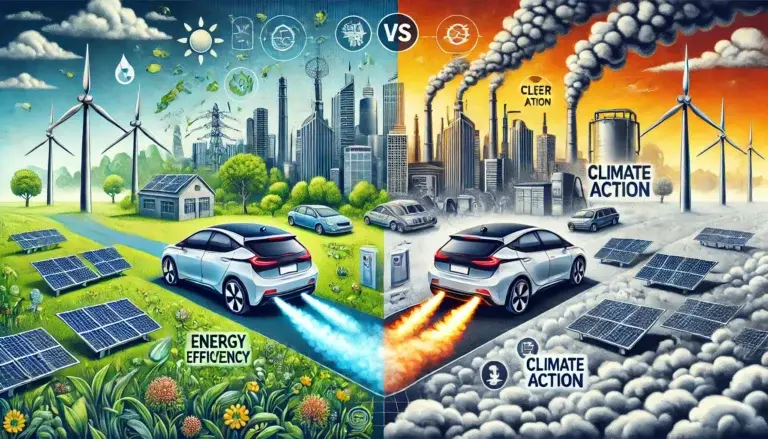
In comparing electricity and gasoline cars, a clear distinction can be made regarding emissions-cutting, energy preservation, and sustainable practices. First, electric vehicles can be seen as leaders in the transition towards a cleaner and greener transportation industry, as well as the troublesome effects of gasoline vehicles on the environment.
The present study aims to identify how electric cars can involve drivers in developing systems that improve air quality, fight climate change, and increase energy efficiency in the auto manufacturing sector. The shift from gasoline automobiles to electric cars is a significant developmental leap toward creating a society where transport is harmonious with responsible and effective stewardship of the natural environment, and technology fosters constructive transformation worldwide.
Emission, Energy, and Sustainability Differences
| Feature | Electric Car | Gasoline Car |
| Emission | Zero tailpipe emissions | Emissions contribute to air pollution |
| Operating Cost | Lower operating costs (electricity is generally cheaper than gasoline) | Higher operating costs (gasoline is generally more expensive than electricity) |
| Performance | Smooth and quiet ride, instant torque, and faster acceleration | Noisier ride, with slower acceleration |
| Infrastructure | Limited charging infrastructure (although expanding rapidly) | Established infrastructure (gas stations are widely available) |
| Driving Range | Limited driving range (typically 200-300 miles) | Longer driving range (can travel farther without needing to refuel) |
| Refueling Time | Longer refueling time (can take hours to charge fully) | Faster refueling time (can refuel in minutes) |
Cost Efficiency: Which One Saves More?
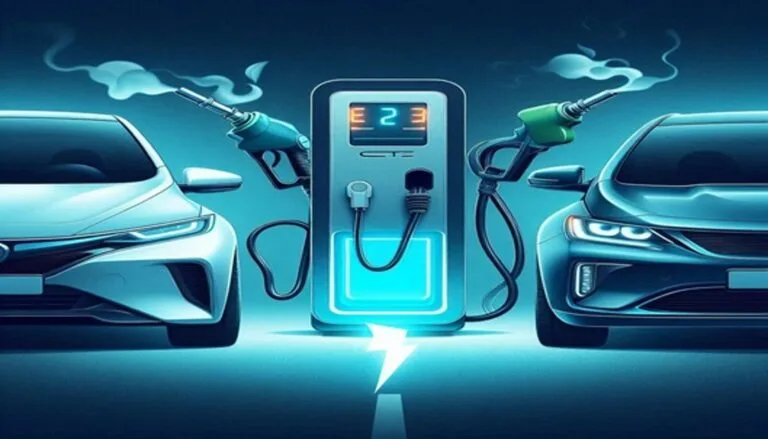
Electric cars:
Electric cars have some additional features, which make their price higher than gasoline cars, but they pay off the difference between fuel and maintenance expenses in a while. The United States Department of Energy approximates that electric vehicles can be between 2-3 times more effective in energy use than gasoline vehicles.
Therefore, they cost less to fuel over a longer period. Also, electric cars are known to have fewer requirements for moving parts, thus making them less expensive to maintain than gasoline cars.
Gasoline Cars:
C1 cars have relatively cheaper procurement costs compared to diesel cars but relatively high costs on fuel and maintenance costs throughout their useful life. The cost of a gasoline car is higher than that of an electric vehicle, especially due to the continuously changing gasoline prices and standard upkeep costs to future price cuts in such automobiles and enhanced technology.
Performance and Range of Electric and Gasoline Cars
Advantages of Electric Car Performance
Most people know electric vehicles provide immediate torque, acceleration, and silence. Today, there is quite a variety of electric cars, and recent models, such as the Tesla Model S, can travel up to 300 miles on a single battery charge. Besides, charging infrastructure is growing fast, providing more comfort in owning an electric one.
Long-Distance Travel with Gasoline Cars
Full-sized gasoline cars have always been popular for their cruising range and refuelling comfort. Gas stations are available almost globally, and as a result, long-distance traveling in gasoline cars consumes very little time compared to the time needed for refueling. However, the development of electric vehicles has added to the question by reducing differences in range and charging time from those of gasoline cars.
Infrastructure and Charging Needs
Expanding EV Charging Networks
It is critical to the mass use of electric vehicles to bring charging stations everywhere. The public and private actors are deploying large capital to develop more charging points to accommodate the increasing EV population. The Pew Charitable Trusts report that the deployment of publicly accessible charging stations in the United States has been rising, which helps enable more extensive travel and expand EV adoption.
Gasoline Car Refueling Convenience
Gas cars enjoy some advantages because refueling is more easily available in most places than electric cars do to recharge. However, the reliance on fossil fuels and environmental problems have compelled car manufacturers to find other alternatives for fuel, such as electricity. Benin: Gasoline cars can sometimes be a problem in the future with changes in energy supply and demand worldwide.
Maintenance and Durability: A Closer Look
Simplified Maintenance for Electric Cars
EVs have fewer mechanical parts than gasoline vehicles, making them vulnerable to frequent mechanical failures. EVs have fewer parts inclined to degrade over time; therefore, the collector and maintenance costs will likely be low. The degradation of batteries and warranties in electric cars is steadily being enhanced, adding confidence to EV owners.
Challenges in Maintaining Gasoline Cars
Petrol cars have complicated combustion engines and transmission systems; thus, efficient working and proper maintenance ensure durability and performance. Diesel cars do not require oil filters, spark plugs, or timing belts; hence, they do not have to be replaced often, further contributing to the cost of maintaining gasoline cars. As mentioned, it is much cheaper to manufacture electric automobiles since they do not have nearly as many moving parts as gasoline cars do. As a car ages, maintenance becomes a prominent expense.
Safety Features Comparison
Advanced Safety Systems in Electric Cars
New electric cars have installed numerous safety systems and autonomous driving, providing drivers and passengers with higher road protection. The Insurance Institute for Highway Safety (IIHS) claims that electric cars score well in terms of safety because of their structures, crashworthiness, and ability to avoid crashes. Such aspects as automatic emergency braking, lane-keeping assistance, and adaptive cruise control are realized in many specimens of electric vehicles.
Safety Features of Gasoline Cars
Like all other cars, gasoline cars also have many safety features; however, electric vehicles have stepped up the game regarding safety features. Gasoline cars have many modern features that make them self-driving, which may affect safety in some ways compared to electric vehicles. Contemporary development in automotive safety is a combined effort, and electric and gasoline cars as vehicles on the road incorporate new technologies for safety.
Government Incentives and Policy Impacts
Electric Car Incentives Driving Change
Today’s governments across the globe are coming up with incentives and policies to encourage people to use electric vehicles and diminish greenhouse gases. For example, consumer incentives in the form of federal tax credits for the purchase of electric automobiles or state tax rebates for buying compact cars serve as stimuli that make purchasers choose to be ‘green. The International Council on Clean Transportation claims that government backing is vital for making e-mobility a reality.
Regulatory Standards for Gasoline Cars
The implementation of policy measures can closely regulate gasoline cars according to their fuel efficiency and emissions standards to control the impact of environmental pollution. In the same way, to control ecological pollution and improve air quality, the EPA provides emission standards for gasoline vehicles. Since sustainability is gradually becoming an important aspect of transport, gasoline cars may be subject to certain specific requirements for their impact on the environment and the consumption of resources.
Consumer Preferences and Trends
Rising Popularity of Electric Vehicles
As much as there is growing diminishing political support globally, consumers remain excited about electric vehicles because of climate change, fuel costs, and technological advancement. McKinsey & Company also opines that the existing consumer studies show an emerging market for electric cars, especially in cities with relevant environmental issues. Two important breakthroughs in battery development and charging networks have spurred the transition to electric transport.
Continued Demand for Gasoline Cars
Nonetheless, various gasoline vehicles are still in high demand since some motorists remain willing to sacrifice a long driving range for cost and the availability of existing refueling networks. Consumers are unique and have different needs, while others may develop some preferences and go for a ‘gasoline car’ because of their familiarity with it. Kitayama’s paper shows that the automobile market is diverse by providing examples of electric and gasoline cars.
Conclusion: Choosing Between Electric and Gasoline Cars
In the current discussion of electric cars versus gasoline cars, each has distinct characteristics that make them suitable for use by contemporary drivers. EVs have low emissions, lower cost outcomes, and innovation for fuel in contrast to gasoline cars that guarantee long distances, easy fuel refill, and market popularity. So, whether it is gasoline or electric vehicles, this is still debatable for today’s transformed car manufacturing world, where the emphasis has been changed to eco-friendly electric vehicles.
That is why, considering the mentioned aspects, it becomes possible to make the best decision according to the drivers’ values and choices. Consumers can choose between zero-emission or efficiency depending on the popularity of electric cars over conventional gasoline cars. The development of the automotive industry is undoubtedly progressing to a much cleaner form of transport. Appreciating the differences and consequences of these choices helps individuals determine the best steps to take according to priorities and preferences and drives them to a sustainable and unprecedented technological level.
Frequently Asked Questions
10 Reasons Why Gas Cars Are Better Than Electric?
- Longer range per refueling compared to many electric vehicles.
- Faster refueling times at gas stations.
- Established infrastructure with more fueling stations.
- Often lower initial purchase costs.
- Proven reliability with decades of innovation.
- Easier to find parts and mechanics for maintenance.
- Consistent performance in extreme weather conditions.
- Broader selection across vehicle types and models.
- Superior towing capacity for larger vehicles.
- Established a resale market with predictable depreciation.
Electric Cars vs Gas Cars: Environmental Impact?
Electric cars produce zero tailpipe emissions, significantly reducing air pollution. However, their environmental impact depends on the energy sources used for electricity generation. Gas cars emit greenhouse gases directly and have higher overall emissions when fuel production is included.
Gas Cars vs Electric Cars: Pros and Cons?
Gas Cars:
Pros: Longer range, quick refueling, lower upfront costs.
Cons: Higher emissions and ongoing fuel expenses.
Electric Cars:
Pros: Environmentally friendly, lower maintenance costs, cheaper to operate.
Cons: Limited range, longer charging times, higher purchase prices.
Electric Cars vs Gas Cars: Graph?
A comparative graph can illustrate key metrics such as initial cost, maintenance cost, emissions, and fuel efficiency. Data visualization helps users see the trade-offs at a glance.
Gas vs Electric Car Cost Calculator?
An interactive calculator can help users compare the lifetime costs of gas vs electric cars, factoring in purchase price, fuel/charging costs, maintenance, and incentives like tax credits.
Are Gas Cars Faster Than Electric?
Due to advanced engine designs, gas cars often have higher top speeds, but electric cars excel in acceleration, delivering instant torque and faster 0-60 mph times.
Electric Cars vs Gas Cars: Compare and Contrast Essay?
A structured essay should examine cost, performance, environmental impact, infrastructure, and future trends. Highlight how preferences and needs influence the better choice for individuals.
Are Electric Cars Better for the Environment?
Yes, electric cars have a smaller carbon footprint over their lifetime, especially in regions with renewable energy sources. They contribute less to air pollution and climate change than gas cars.
References
International Energy Agency (IEA) – Electric cars and their role in reducing greenhouse gas emissions and combating climate change.
Source: IEA Report on Electric Vehicles.
U.S. Department of Energy – Insights into the efficiency of electric vehicles compared to gasoline cars in energy consumption.
Source: U.S. Department of Energy – Energy Efficiency of Electric Vehicles.
Environmental Protection Agency (EPA) – Impact of gasoline cars on air quality and greenhouse gas emissions.
Source: EPA – Transportation and Air Quality Overview.
Insurance Institute for Highway Safety (IIHS) – Electric vehicle safety features and crashworthiness evaluation.
Source: IIHS – Electric Vehicle Safety Studies.
Pew Charitable Trusts – Expansion of electric vehicle charging infrastructure in the United States.
Source: Pew Charitable Trusts – EV Charging Infrastructure Report.
McKinsey & Company – Consumer trends and preferences toward electric vehicles.
Source: McKinsey Insights – The Electric Vehicle Market.
International Council on Clean Transportation (ICCT) – Government incentives and policies to promote electric vehicle adoption.
Source: ICCT – Global Electric Vehicle Policy Research.
Kitayama, R. – Analysis of consumer behavior and the automobile market diversity.
Source: Kitayama, R. – Consumer Perception of Gasoline and Electric Cars.
————————————————————————————————————————————–
A Comprehensive Guide to Honda Accord: A Timeless Choice for 2024 Car Buyers
Case Studies of Cities Heavily Impacted by Smog from Vehicle Emissions
Enhancing Air Quality and Comfort The Function of Climate Control Systems in Automobiles
Global Data – EV Tracking System & Emission Monitoring
Global Road Safety & Vehicle Standards_ A Complete Guide
Riding High – The Top 5 Vehicles Dominating 2024
Toyota Corolla 2024 Review – Everything You Need to Know About Features, Price, and Performance
The 15 Leading Startups Revolutionizing Autonomous Vehicles in 2024
The Evolution and Appeal of Sports Cars_ A Comprehensive Analysis
The Impact of Green Technology on the Automobile Industry
The Science Behind Car Safety Features_ How They Work
From Seatbelts to Sensors_ The Journey of Car Safety Innovations
How to Buy a Used Car_ A Step-by-Step Guide
We are a Trusted Name in Automotive Industry & Technologies!
Our Trusted Partners
We are proud to collaborate with industry leaders to deliver exceptional value and quality to our customers:
- Auto World Japan: A trusted name in exporting high-quality Japanese vehicles worldwide.
- BE FORWARD: A global leader in selling and exporting used cars with an excellent reputation.
These partnerships allow us to bring you reliable, top-tier services and products directly.

